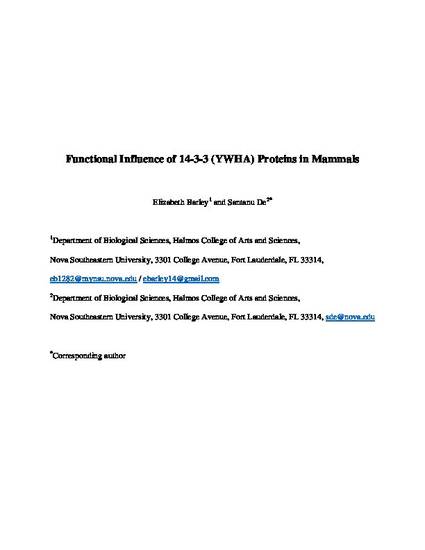
The 14-3-3 (YWHA) proteins are homologous, ubiquitous, and conserved in most organisms ranging from plants to animals and play important roles in regulating key cellular events such as cell signaling, development, apoptosis, etc. These proteins consist of seven isoforms in mammals, termed under Greek alphabetization: beta (β), gamma (γ), epsilon (ε), eta (η), tau/theta (τ), sigma (σ), and zeta (ζ). Each of these isoforms can interact with a plethora of binding partners and has been shown to serve a distinct role in molecular crosstalk, biological processes, and disease susceptibility. Protein 14-3-3 isoforms are scaffolding proteins capable of forming homodimers and heterodimers in mammalian cells. The dimerizing abilities of these isoforms have helped the understanding of their importance in mammalian cells. This article provides a comprehensive review encapsulating the functional influence of the 14-3-3 isoforms in various species, cells, tissues, organs, developmental stages, and disease states within mammals.
Available at: http://works.bepress.com/santanu-de/53/
